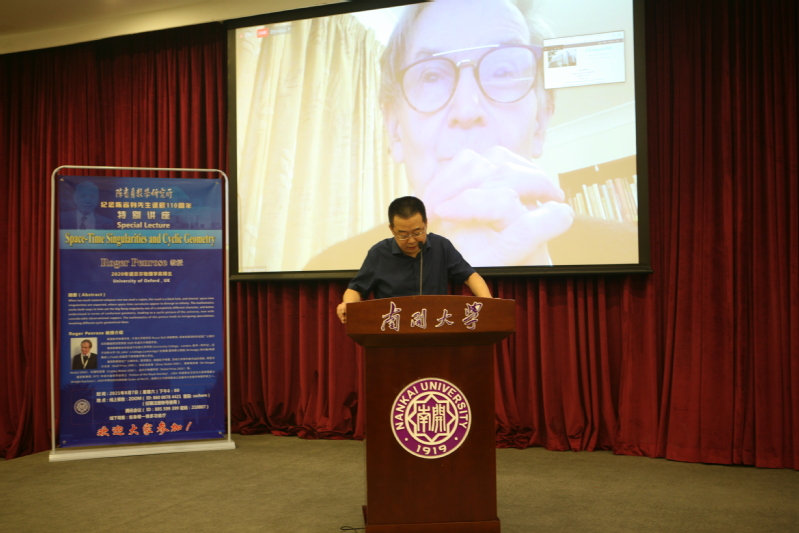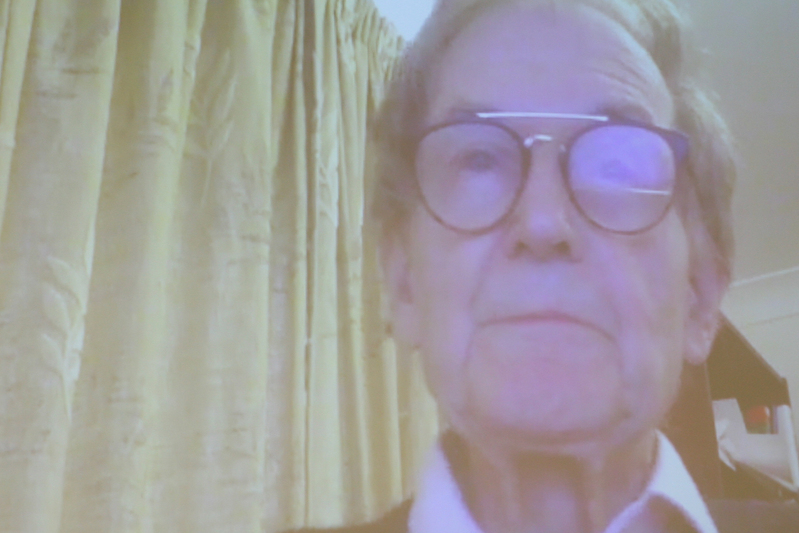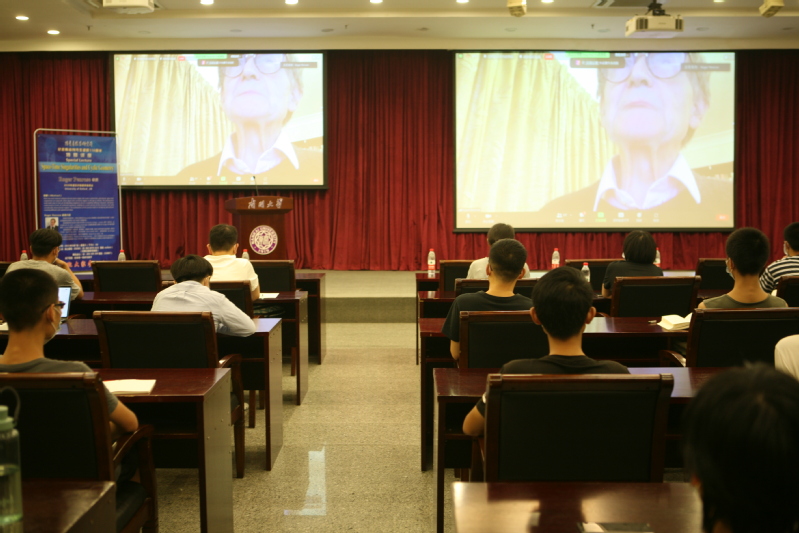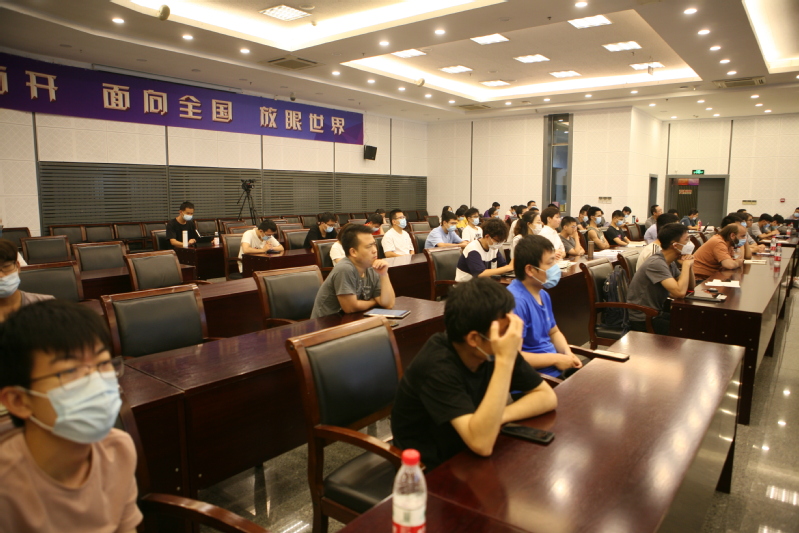— Nobel Laureate in Physics Prof. Roger Penrose delivers Special Lecture
for the 110th Anniversary of the Birth of Shiing-Shen Chern

On 7 August 2021, Sir Roger Penrose, professor at the University of Oxford and 2020 Nobel Laureate in Physics, was invited to deliver an on-line Special Lecture for the 110th Anniversary of the Birth of Shiing-Shen Chern titled "Space-Time Singularities and Cyclic Geometry". Organized by the Chern Institute of Mathematics (CIM), teachers and students of Nankai University attended the lecture at the branch venue in Shiing-Shen Building. The lecture was hosted by Prof. Chengming Bai, the director of CIM.


In the beginning, Prof. Penrose introduced singularities in gravitational collapses. Stars collapse into black holes and singularities come into being. Prof. Penrose won the 2020 Nobel Prize in Physics for the discovery that black hole formation is a robust prediction of the general theory of relativity.
Later on, Prof. Penrose came to another kind of singularities — the singularity at the big bang of the universe. He compared the big bang singularity and the black hole singularity and showed that they are quite different. For example, the Weyl curvature of the big bang singularity vanishes while the Weyl curvature of the black hole singularity blows up. The behavior of the Weyl curvature indicates that one can deal with the big bang with the conformal geometry. The big bang is just the state of the universe aeons ago and the state of the universe now may also be called a big bang aeons later. As mentioned in the title, Prof. Penrose call it "Cyclic Geometry". For the real case which is lack of the conformal symmetry, Prof. Penrose introduced the twistor theory.

After the lecture, Prof. Penrose had a long-time interaction with the audience online and at the branch venue by giving detailed answers and explanations to the audience's questions.
Then Prof. Penrose shared some stories of his postgraduate learning and the influence of his family on him. He said he went to three courses out of interest during he was a graduate student. Those courses had nothing to do with his major subjects, but were very inspiring and had big influence on his life later on. What he learned from the courses had become the diving force behind what he later did.
"Do what excites you." At the very end of the event, Prof. Penrose gave his advice to Chinese students based on his own experience and thinking. "I just did things at the time which I felt were interesting and exciting, and was fortunate enough in later life to be able to bring some of these things together." Prof. Penrose thinks it's an useful experience to spread out and learn about other things which are not one's own direct subjects. "I think it depends on your nature." He said to the audience. And he believes both are good that some people like to study things very deeply, while some may prefer thinking things on a broad scale, like himself, about how things might influence each other. "Be what your own talents are, and try to go in the direction which is accordant to the talents." said Prof. Penrose, "I think it depends on who you are. Do what excites you. Do what you are interested in. I think that would be my general advice."
During the two-hour lecture, Prof. Penrose, who was going to celebrate his 90th birthday on the next day, was energetic from beginning to end, and took the audience on a wonderful on-line journey through space and time. The lecture proceeded in a warm and active atmosphere with more than 400 audiences participated in.
This year marks the 110th anniversary of the birth of Shiing-Shen Chern, and the Special Lecture was set up by CIM in memory of this internationally renowned mathematician. The lecture on 7 August was also one of the public lectures at the Nankai Symposium on Mathematical Dialogues, which was held online during 2-13 August. Organizers of the symposium include Prof. Yang-Hui He from the University of Oxford, academician Mo-Lin Ge and Prof. Chengming Bai from the Chern Institute of Mathematics, Nankai University.
Introduction to Prof. Roger Penrose:
Roger Penrose, in full Sir Roger Penrose, British mathematical physicist, Rouse Ball Professor of Mathematics at the University of Oxford, and 2020 Nobel Laureate in Physics for the discovery that black hole formation is a robust prediction of the general theory of relativity.
Prof. Roger Penrose obtained a B.Sc. degree in Mathematics at University College London and then was awarded a PhD in Mathematics at St. John's College, Cambridge under the supervision of Professor W. Hodge and J. Todd.
Prof. Penrose has made outstanding contributions to general relativity theory, black hole theory, high-energy particle physics and Pure geometry. He has received the Wolf Prize in 1988, the Dirac Medal in 1989, De Morgan Medal in 2004, the Copley Medal in 2008, and the Nobel Prize in 2020, etc.
Prof. Penrose was elected a Fellow of the Royal Society in 1972 and awarded a Knight Bachelor in 1994. In 2000 he received the Order of Merit. He is recognized as one of the greatest mathematical physicists since Einstein.